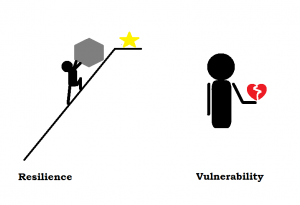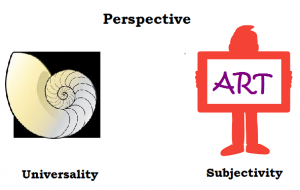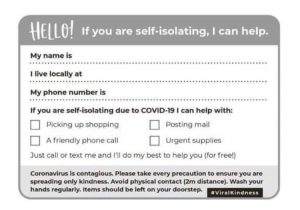If ever there was a VUCA event (Volatile, Uncertain, Complex, Ambiguous) it is the Covid-19 virus crisis (Corona Virus). Trying to figure out how to process information, take care of yourself, maintaining or finding a new job, care for others is important.
What then to do whilst not feeling overwhelmed links back to the good practice of levels of analysis. When an organisation (or individual) is faced with a crisis, it helps to analyse what is going on at which level (and to what extent can you control it): individual level, organisational level and (inter)national level. Unless you’re the president or prime minister, there is little you can do but write to your political representative to indicate what you want (try one tweet also but extensive rants on social media won’t help). You must take care of yourself (especially if you are looking after others also). It is tempting to want to be ‘resilient’ – I can go out and beat this virus – you probably will survive it, but may infect someone else (who you love) who won’t.
Beware of your mental well-being. Whereas stress and adrenaline helps when we’re navigating difficult traffic, long term stress is not good. HPA (Hypothalamic Pituitary-Adrenal) axis is our ‘fight or flight’ response and, if ‘on’ for longer term, this may cause anger, anxiety and depression. It can also affect our immunity as in ‘fight or flight’ mode the body will send energy to this and not other ailments that need healing.
- Sleep is important. It is like a CNTRL-ALT-DELETE for the brain – avoid too many uppers (caffeine) and downers (alcohol/tablets). Try meditation (yoga nidra) or prayer.
- Healthy body – do exercise (jump rope, find video online, go for a walk in nature), eat nutritious food. Don’t see this as a license to eat junk food, see it as a time to rest and take care of yourself whilst not ‘on the go’.
- Down-regulate HPA by finding happiness and hope in gardening, family, work, academic work. Set achievable tasks and deadlines. Create a rota for the home that includes listening to music or David Bowie narrating ‘Peter & The Wolf‘ Nature is a very good way of soothing anxiety but if you really can’t go out (self isolating) or you’re in the city and there’s no space – find Motion Art on Netflix or listen to birdsong
For decades people have used the word ‘agile’ and expensive Business Consultants are now finding out that they too must practice what they preach. Previously relatively stable jobs and industries are suddenly affected (think of retreat and conference centres, hotels, restaurants, gyms but then also consider their supply chain: food and cleaning companies, or artists, teachers). Some restaurants now deliver toilet rolls. Other kinds of agile thinking involves beer companies now making hand sanitisers, museums opening up digitally but paid-for nature parks opening up to the public to get them out and about.
If anything, this crisis also shows that there is cultural variation in how to handle a crisis. There is no specific leadership that fits the scenario. However, Michel Gelfand has written about how cultures that are ‘tight’ often had to deal with a crisis before and now ‘free’ or ‘lose’ Western democracies need to do the same. As some governments are finding – kindly asking citizens to do something or refrain from something, isn’t quite working! Yes, many of us are concerned about autocratic leadership and fascism. Still, this is not a war with another nation or ‘ism’ – it is a global health threat.
So how does this fit with Cultural Intelligence? Well, a leader must know how their ‘people’ – be it citizens or employees respond to certain tactics PROVIDED they keep in mind the macro level situation. So, yes, for a modern organisation, being agile and flexible is good and micro-management and bureacracy isn’t. But the minute that the macro-level enviroment changes, the leadership style must adapt also. With a threat, people want information and direction. There will also be a strong need for ‘fairness’. Asking people to engage in ‘social distancing’ to help the vulnerable and elderly and then subsequently the elderly are still out and about in town or garden centres may raise some eyebrows or more. People want to belong and, after decades of pushing for ‘individualism’ and ‘entitlement’, it’s important to foster a sense of community.
Steve Reicher, Social Psychologist, advised that people will not riot because of scarcity necessarily, more likely it is when they perceive inequality. Therefore a shift from individualism to collectivism in a time of crisis is important (see Reicher’s piece with John Drury, a riot expert, here: https://thepsychologist.bps.org.uk/dont-personalise-collectivise ). They make clear that at national level, a shift in cultural norms must take place for people to behave decently and not selfishly: “The best way to stop people going out when unwell or demanding resources they need less than others is not simply to change internal motivations but also to mobilise external disapproval. The feverish person who goes to work, the fit young person demanding access to A&E will be best dissuaded when the community comes together to make clear that these are not acceptable behaviours.”
What can organisations do? Be aware of the need for organisational justice: interpersonal and informational justice (how does my supervisor communicate with me and is it true or inauthentic?), distributive justice (are we all taking a paycut?) and procedural (how are things managed? what are the guidelines?). A leader or manager can make clear rules and procedures about what is required so to ensure employees will still engage in helping each other and giving (innovative) input. We analysed data from organisations in 17 different countries and that study can be found here. We advise organisations to not take advantage of uncertainty by creating more chaos (e.g., firing people) but be transparent and clear about the way forward, setting some ground rules but also asking for input and coming up with creative ideas to weather the storm.
Overall, be prepared that some things will change permanently, new opportunities will arise and if you lend a hand, it’s likely that someone else will be kind in turn. Here’s an example of how to do that on your street/in your community.













